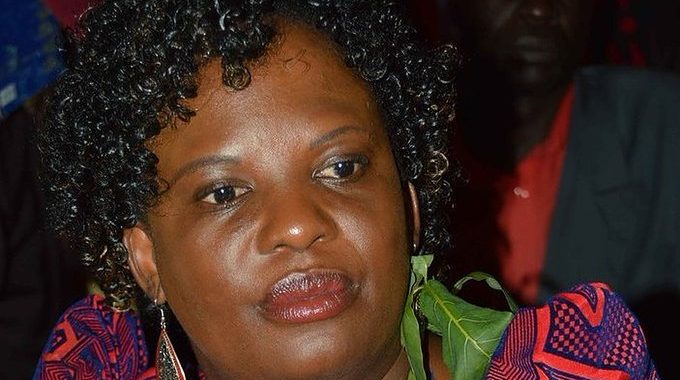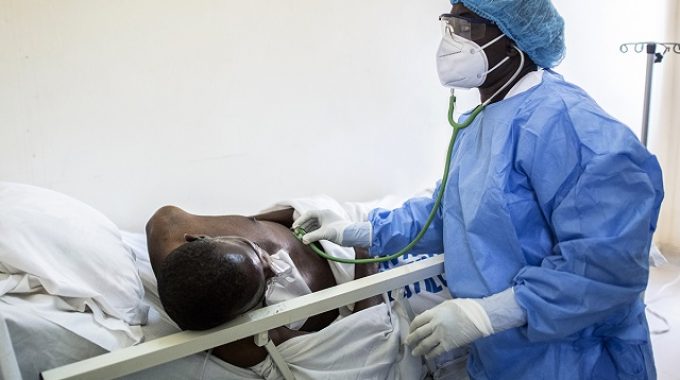The National Social Security Fund (NSSF) has told the members that save with the Fund to expect a reduction in the interest rate this year compared to last year.
Speaking in Kampala on Tuesday, NSSF managing director Richard Byarugaba said that although 2018/19 was a very “difficult year” for the Fund, a 13.6% growth rate was realised.
NSSF recorded “good performance in spite of the challenging economic environment”, he added.
But that given the Fund’s performance this year, the Fund is not expected to match the interest rate paid the previous year.
Byarugaba was announcing the Fund’s interim financial performance of the year 2018/2019 during a media dialogue
Here are excerpts from Byarugaba’s delivery:
During this year, the Uganda economy witnessed stable growth at 6.1% compared to 6.2% in the previous year. This was supported by an accomodative monetary policy stance, improvement in agriculture sector and growth in public infrastructure developments
In Kenya, growth is expected remain flat at 5.8% vs 5.8% in 2018. We attribute this to the better weather conditions that were countered by subdued private sector investment witnessed by lower private sector credit in the region of 5.2% and stock market exits.
Official statistics indicate that Tanzania grew 7% and 7.1% however, the World Bank refutes the statement claiming they grew at 5.2% in 2018 and 5.4% in 2019. We attribute the slower growth to policy uncertainty in the country that have affected FDI.
During the period, headline inflation was stable as commodity prices and food prices remained stable due to improved weather conditions and oil gluts. Uganda Inflation remained low at 3.4% and below the long-term target of 5%.
Kenya’s inflation was up closing at 5.7% from 4.28% driven by food inflation following delayed rains in the year. Tanzania’s inflation remained low as well at 3.7% compared to 3.4% a year ago.
Interest rate remained relatively stable in FY 2018/19. However, long-term bond yields dropped with the 15-year moving from 17.75% at the start of the year to 15.85% as at the end of June 2019.
This was significant for the Fund, given that we hold over 70% of our total investment portfolio in long term bonds.
During the year, the East African stock markets suffered significant losses in value. The NSE lost 14%, the USE lost 10% in Uganda and Tanzania plummeted by 21%
We believe the main driver was as a result of foreigners remaining net sellers on the back of global uncertainty regarding trade wars, US interest rates and Brexit. However, other factors like the policy uncertainty exacerbated the sell offs
Further concerns around rate caps in Kenya, widening deficit and fears around an overvalued currency multiplied the negative sentiment in the region with investors flying capital to safety including negative yield bonds in Europe
As a result, the share prices closed below the prices registered in at end of the previous Financial Year, which impacted our equity portfolio
There was general appreciation of the Uganda Shilling in the Financial Year against all major currencies. For instance, the KES depreciated, falling from 37.97 at the start of the Financial Year to close just below 36.
Generally, the Fund registered good performance in spite of the challenging economic environment – mainly the stock market volatility and foreign exchange deficits.
Assets under Management increased by 13.1% from Ugx 9.98 trillion to Ugx 11.3 trillion at 30th June 2019. The growth was mainly driven by increased contributions and interest income.
20.4% growth was in realized income, growing from Ugx 1.04 trillion in 2017/2018 to Ugx 1.25 trillion in 2018/2019 due to increased gross Interest income from Treasury and Infrastructure bonds.
The Fund’s holdings in all foreign exchange markets and its equity positions have accumulated to an unrealized loss of 402 billion shillings as at June 30th 2019. Nevertheless, we believe that this is just a slump in the market.
There was a 17% growth in contributions collections from Ugx 1.049 trillion to Ugx 1.208 trillion. The growth in contributions was driven by growth in the economy which increased the new members registered.
The amount of money paid in benefits increased by 25% from Ugx 360 billion in 2017/2018 to Ugx 450 billion in 2018/19. The Average Benefits Turn-Around-Time 2018/19 remained flat at 8 days.
The increase in benefits is attributed to both an increase in the average payout and members paid.
Cost of Administration improved slightly from 1.31% in 2017/2018 to 1.28% in 2018/2019 with the cost income ratio remained flat at 11.6%
Customer satisfaction slightly dipped by 1% from 85% in 2017/2018 to 84% in 2018/2019 while staff engagement increased from 84% in 2017/2018 to 88% in 2018/2019.
The return paid to members depends on the financial performance of the Fund. This is means that in principle, the members share the profits but also the losses.
Given our performance this year, the Fund will not match the interest rate paid the previous Financial Year 2017/2018. As we await the declaration by the Minister of Finance, Planning & Economic Development next Week.
Our members should therefore expect a reduction in the interest rate this year compared to last year.
However, in fiscal year 2012/2013, we committed to pay members a real return – at least 2 percentage points above the 10 year rate of inflation. Since then, we have consistently delivered on the promise.
I am extremely confident that the Minister will declare a rate that will achieve and even surpass this target. Our members should be confident in the health of the Fund. In the short, medium and long term, the Fund remains financially stable and growing.
The Fund can withstand any shock in the economy, given our aggressive but prudent investment approach and our investment diversification strategy.
“Safety” and “Security” of members’ funds will remain the guiding principle in our decision making.
The East African economies are projected to grow by an average of 6%, driven by infrastructure spend, improved agricultural output and the growth of the oil and gas sector.
In conclusion, although 2018/19 was a very difficult year for the Fund; We still managed to grow the Fund by over 13.6%. We have created value for the members – we will keep our promise to pay 2 percentage points above the 10 year rate of inflation
Sapiosexual & Ambivert



















